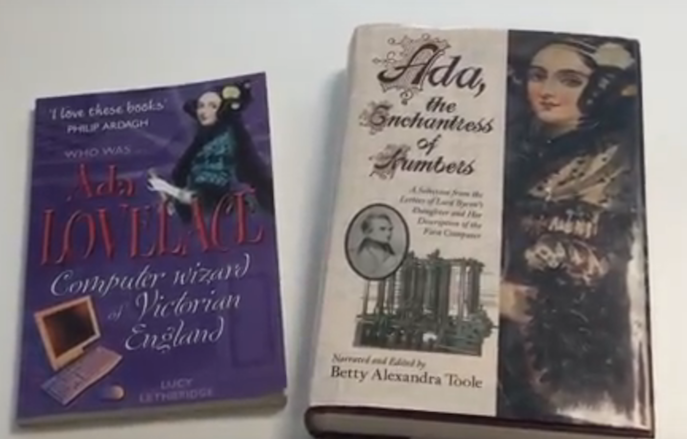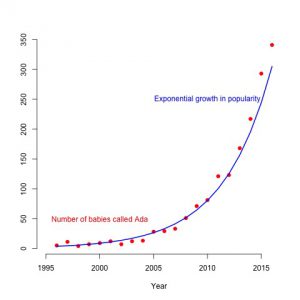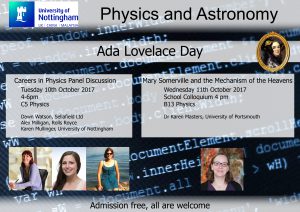
October 9, 2017, by Lindsay Brooke
The Ada Lovelace effect
The Ada Lovelace effect
Ada Lovelace, the ‘Countess of Computing’, was born in London on 10 December 1815. The daughter of Lord Byron, Ada Lovelace was a gifted mathematician recognised for creating the first computer programme and forseeing a digital future.
Every year scientists across the world mark Ada Lovelace Day – which is being held this year on Tuesday 10 October.
Fans of television drama were introduced to Ada Lovelace in Episode 2 of Series 2 of ITV’s ‘Victoria’. But for scientists she means much, much more than a character in a television costume drama.
What’s in a name?
No one is more passionate about Ada and her achievements than Dr Dov Stekel, an expert in Integrated Systems Biology in the School of Biosciences. He named his eldest daughter Ada in her honour and has even tracked the use of the name Ada as it has gained popularity in recent years.
Statistics courtesy of the Office for National Statistics.
Here Dov talks about Ada Lovelace, her contribution to science and women’s role in science and why he thinks so highly of her.
Ada Lovelace Day
Ada Lovelace Day is an international celebration of women in science, technology, engineering and mathematics. It will be marked by the School of Physics and Astronomy with a school colloquium celebrating the work of another 19th century female scientist Mary Sommerville and a panel discussion on careers in physics in the 21st century.
Careers in physics
On Tuesday 10 October there will be a panel discussion on careers in Physics. On the panel – Dawn Watson from Sellafield Ltd; Alex Millgan from Rolls Royce; and Karen Mullinger from the University of Nottingham. This will take place between 4pm and 6pm in Room C5 in the School of Physics and Astronomy.
Mary Somerville and the mechanism of the heavens
On Wednesday 11 October Dr Karen Masters and astronomer in the Instititute of Cosmology and Gravitation at the University of Portsmouth will give a lecture on Mary Somerville. The pioneering science writer and polymath is credited with playing an instrumental role in the discovery of the planet Neptune. The lecture will take place in Room B13 in the School of Physics and Astronomy.
Last year the youtube channel Computerphile – featuring a host of University of Nottingham academics – featured an interview with Professor David Brailsford talking about ‘computer science’s wonder woman’.
Tributes
Staff at students at the University have paid tribute to Ada Lovelace and her legacy.
Dr Elizabeth Argyle, Research Fellow at Institute for Aerospace Technology, said: “Ada Lovelace and her passion for mathematics and computing laid the foundations for modern women to pursue careers in STEM.
“Her contributions shape today’s conversations about engaging women and minorities in these fields. Enhancing diversity brings new perspectives and approaches to solving complex problems in the present day. One challenge for us today is to provide encouraging spaces for the next generation to explore STEM and develop skills while also acting as positive role models for women and men at all stages of their STEM journey.”
No comments yet, fill out a comment to be the first



Leave a Reply